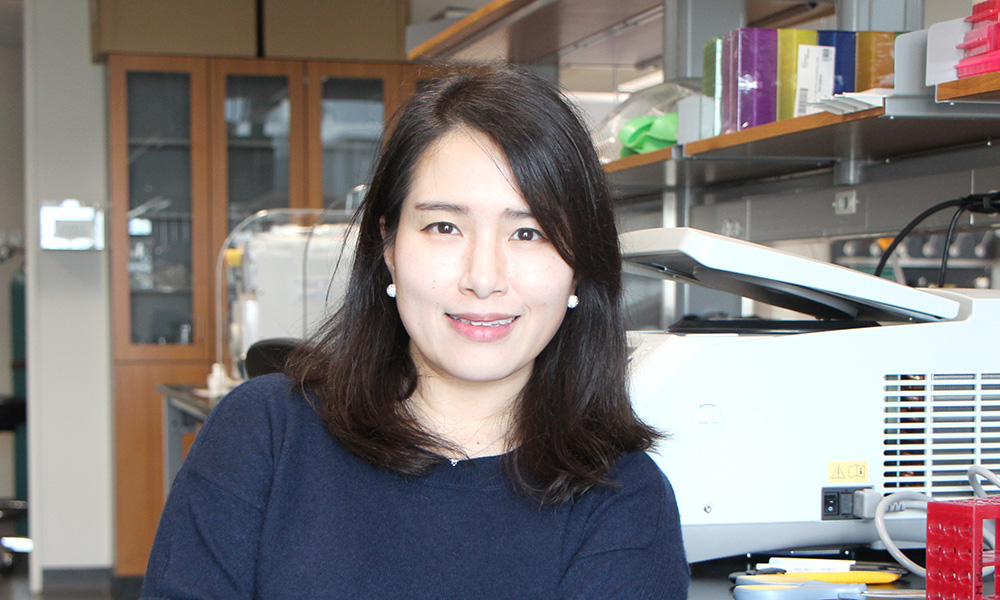Work from the lab of Jeeyun Chung, Assistant Professor of Molecular and Cellular Biology, on lipid droplets’ roles in neurodegenerative diseases will be supported by a Chan Zuckerberg Initiative (CZI) Collaborative Paris Pilot Project Award. The project, titled “Spatial and functional identities of lipid droplets in brains,” will be done in collaboration with Joongkyu Park, Assistant Professor at Wayne State University School of Medicine, and will receive $200,000 for a pilot phase lasting 18 months with the goal of developing a Phase 2 project plan. Successful advancement to Phase 2 will see the team apply to an acceleration grant of $400,000 per year for four years. The entirety of the funding for phases 1 and 2 will total $1.8 million. The award is supported by CZI’s Neurodegeneration Challenge Network (NDCN), with the goal of supporting high risk/high reward work in the field.
“By combining our knowledge and resources, we can effectively tackle complex questions at the intersection of lipid cell biology and neurodegeneration, leveraging each other’s strengths to advance our understanding of brain lipid droplet biology,” says Chung.
Unraveling the role of lipid droplet biology in the brain requires an understanding not only of organelle biology and lipid metabolism but also of neurobiology and synaptic networks, along with techniques typically unique to each field.
The partnership between Chung and Park will be especially fruitful in this area, given her lab’s focus on how cells organize and utilize lipids for cellular functions and why their dysregulation is associated with many metabolic diseases and neurological disorders and his focus on “synaptic molecular dynamics underlying memory formation in health and its impairments in Alzheimer’s disease and related dementias,” according to his website.
“I’m thrilled that the CZI has recognized Jeeyun’s (and Joongkyu’s!) innovative approach to the area of lipid droplets and th
eir role in neuronal function and neurodegeneration with this important award and funding,” says Rachelle Gaudet, Professor and Chair of MCB, and co-director of Graduate Studies, Biophysics. “I very much look forward to learning about the exciting discoveries that will arise from their collaborative research efforts.”
With support from CZI, this collaboration will benefit from access to many other researchers with similar scientific goals.
“The support from the CZI not only provides crucial financial assistance but also facilitates invaluable networking within the neurobiology/degeneration community,” says Chung.
CZI NDCN launched in 2018 to encourage collaborations of biologists, computational scientists, engineers, and physicians who are looking into the unsolved challenges within neurodegenerative diseases. Research into and treatment for these diseases involves a wide range of disciplines, so it’s key that the researchers in the field share knowledge across their academic silos. CZ NDCN promotes interdisciplinarity as well as connections across institutions, with its strong focus on community. To that end, Chung and Park are invited to attend CZI Neuroscience 2024 meeting in July to present their work and network with colleagues also supported by the grant.
“This community-driven collaborative approach is particularly important for tackling challenging questions, such as lipid droplet biology in neurodegeneration, as it fosters opportunities for collaboration and knowledge exchange,” says Chung.





